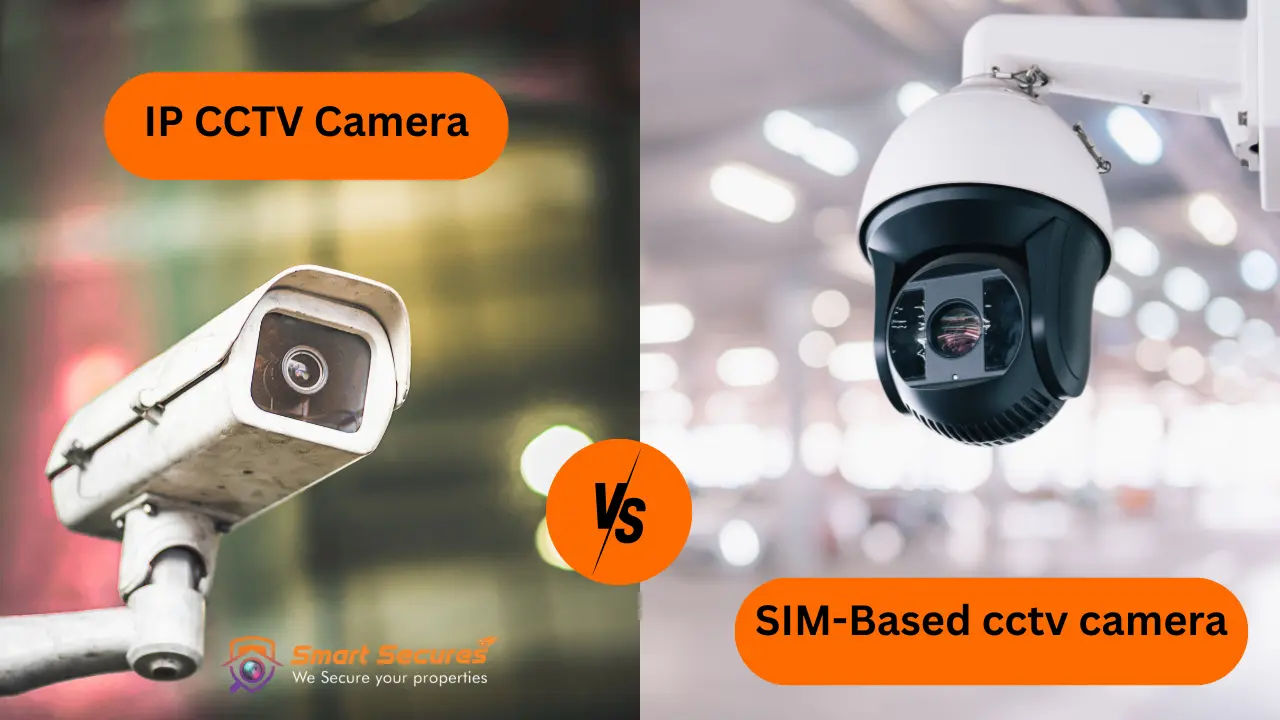In today’s world, security is no longer a luxury—it’s a necessity. Whether you're protecting your home, office, or remote property, choosing the right surveillance system is critical. Two of the most popular options are IP cameras and SIM-based cameras. But how do you decide which one is best for your needs?
This guide explains the main differences between IP and SIM-based cameras. It will help you choose based on your environment, budget, and connection options.
What is an IP Camera?
An IP (Internet Protocol) camera is a digital security camera. It sends video over a local network or the internet. These cameras usually connect through WiFi or Ethernet. They can work with NVR (Network Video Recorder) systems or cloud storage.
Key Features of IP Cameras:
- High-resolution video (up to 4K)
- Real-time remote monitoring via mobile apps
- Motion detection alerts
- Integration with smart home systems
- Cost-effective for long-term use
IP vs SIM Camera: Side-by-Side Comparison
Feature | | |
| | |
| | |
| | Homes, offices, buildings |
| | Remote areas, farms, construction sites |
|
| | Uses home internet (unlimited) |
| | Limited by mobile data plan |
|
| | Often requires stable power |
| | Can be solar-powered or battery |
|
| | | Requires SIM card and data plan |
|
| | Typically higher, stable stream |
| | May vary with signal strength |
|
What is a SIM-Based Camera?
A SIM-based security camera uses a cellular network (3G/4G/5G) to transmit video data. It needs a SIM card with an active data plan. This makes it great for places without good WiFi or wired internet.
Key Features of SIM Cameras:
- Works in remote locations
- No need for fixed broadband
- Supports real-time monitoring via mobile network
- Simple plug-and-play setup
- Suitable for temporary or mobile use
When to Choose an IP Camera
- You have access to reliable WiFi or Ethernet.
- You need high-quality video streaming and storage options.
- You want integration with smart home or office systems.
- You prefer unlimited data usage for continuous surveillance.
Popular for home use, indoor/outdoor IP cameras offer clear footage, motion detection, and cloud or local storage options.
When to Choose a SIM-Based Camera
- You’re monitoring a remote location with no internet.
- You want a quick setup without networking complications.
- You require flexible and mobile deployment (e.g., construction sites, farms, vacation homes).
- You’re okay with managing data limits and mobile plans.
These 4G SIM CCTV cameras are great for areas without power. They work even without WiFi, making them very useful for many situations.
Pros and Cons
IP Camera Pros:
- No ongoing data charges
- High-quality video and stable connection
- Great for permanent setups
IP Camera Cons:
- Requires WiFi or wired internet
- Installation can be complex for some users
SIM Camera Pros:
- Works anywhere with mobile coverage
- Easy to install and relocate
- Great for temporary or remote use
SIM Camera Cons:
- Dependent on mobile signal strength
- Ongoing data plan cost
- Video quality may be affected by poor signal
Common Questions
Do SIM-based cameras need WiFi?
No. SIM-based cameras connect through a cellular network, so no WiFi is required.
Can I use an IP camera without internet?
Some IP cameras allow local recording on SD cards or NVRs, but remote access and alerts require the internet.
Which is better: IP or SIM camera?
It depends on your needs. Use an IP camera if you have internet access. Choose a SIM-based camera for off-grid or mobile setups.
Conclusion: Which Camera is Right for You?
When deciding between an IP camera and a SIM card camera, consider a few factors. First, think about your location. Next, check your budget. Finally, assess your connectivity needs.
For urban homes, offices, and smart buildings, go with an IP camera.
For farms, construction sites, or remote cabins, a SIM-based camera is the smarter pick.
Both offer great features for security, but your specific environment will dictate the best fit.

